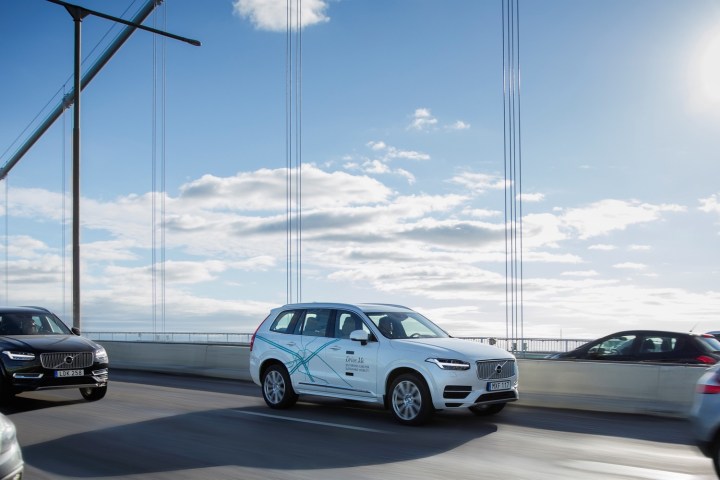
Nvidia is basically joining an existing team consisting of Volvo, automotive supplier Autoliv, and Zenuity, a joint venture of Volvo and Autoliv created to develop software for self-driving cars. While those three partners have the software covered, Nvidia will provide the computers to run it on.
The tech company’s contribution will likely take the form of its Drive PX 2 platform, a hardware set designed specifically for self-driving cars. Volvo already uses Drive PX 2 in the handful of prototype self-driving cars it’s testing in Gothenburg, Sweden, under the “Drive Me” program. Drive PX 2 is also the brain of Roborace’s autonomous race cars.
Together with its partners, Volvo believes it can develop self-driving cars with some degree of decision-making capability. The term “artificial intelligence” gets thrown around a lot these days, but autonomous cars will need to be able to “think” for themselves in order to be as responsive as human drivers. Whether that capability can actually be developed remains unclear, but AI has become something of a buzzword in the autonomous-car field. Toyota is working with MIT and Stanford on its own AI project, and Audi hopes to develop software with some “learning” capacity for its future production cars.
Under the agreement, Zenuity will take the lead in developing self-driving car software, which will be used in Volvo’s cars. However, Autoliv will have the option to market the software to third parties. Volvo hopes to put Level 4 autonomous cars on the road by 2021. That means they’ll be able to drive themselves nearly all of the time, but may need human intervention in certain situations. Level 5 autonomous cars don’t require any human input, but the technological gap between Level 4 and Level 5 is pretty big.
Nvidia is aggressively growing its self-driving car business. It has additional partnerships with Audi, Mercedes-Benz, and Toyota notes Reuters. It’s also working with automotive supplier Bosch on a new computer that will be smaller and lighter than the current Drive PX 2 computer.
Editors' Recommendations
- Tesla Autopilot vs. full self-driving: What’s the difference?
- Cruise autonomous vehicle drives over woman just after she was hit by another car
- Volkswagen is launching its own self-driving car testing program in the U.S.
- Is Tesla Full Self-Driving worth it?
- Apple’s rumored car could cost the same as a Tesla Model S



